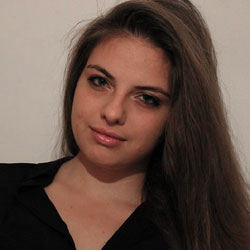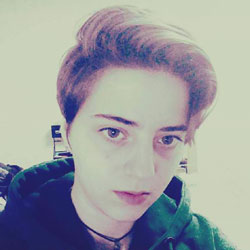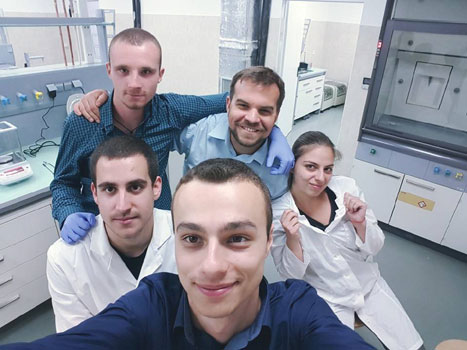Are bacteria able to speak and if so, on what principle? Evgeniya Mihaylova and Natali Atanasova are part of the first Bulgarian team which has the ambition to participate at the International Genetically Engineered Machine Competition iGEM held each year in the US city of Boston. It is a worldwide synthetic biology competition that was initially aimed at undergraduate university students, but has since expanded to include divisions for high school students, entrepreneurs and community laboratories. The Bulgarian team consists of 15 people. Currently they are getting ready for that competition in the high-tech laboratory in Sofia Tech Park. The project of the Bulgarian team is connected both with biology and engineering.
 “We named the project The Talking Bacterium", Evgenia says. "Imagine a bioreactor consisting of cells which live there and someone has to measure their indices and find out what those cells need. We found a way to learn what bacteria need - they emit a light signal and we measure its characteristics. We will develop a special system which would allow us to feed the bacteria from a distance. The idea may sound simple, but it would have a huge application in industry - not only in the laboratories, but also in various types of manufactures, in pharmaceutical industry, etc. In iGEM we show an innovative model which can be developed in the future. Our purpose is to create a new generation of measurement systems which help bacteria communicate with people.”
“We named the project The Talking Bacterium", Evgenia says. "Imagine a bioreactor consisting of cells which live there and someone has to measure their indices and find out what those cells need. We found a way to learn what bacteria need - they emit a light signal and we measure its characteristics. We will develop a special system which would allow us to feed the bacteria from a distance. The idea may sound simple, but it would have a huge application in industry - not only in the laboratories, but also in various types of manufactures, in pharmaceutical industry, etc. In iGEM we show an innovative model which can be developed in the future. Our purpose is to create a new generation of measurement systems which help bacteria communicate with people.”
In Natali's words, the project has been meeting financial difficulties. It needs huge financial resource, in order to be fulfilled and the team members were forced to look for financing alone.
 “First we had to pay USD 5,000 for the registration, in order to participate at that competition", Natali explains. "We received a box full of biological material necessary for our competition. We found this money with huge efforts and we appreciate a lot the assistance provided by other people. Currently, however, we need reagents, biological consumables and enzymes, in order to do our job properly. We already bought some of them, but we still need to buy a lot more. We made a rough budget and estimated that we need an extra USD 20,000. ”
“First we had to pay USD 5,000 for the registration, in order to participate at that competition", Natali explains. "We received a box full of biological material necessary for our competition. We found this money with huge efforts and we appreciate a lot the assistance provided by other people. Currently, however, we need reagents, biological consumables and enzymes, in order to do our job properly. We already bought some of them, but we still need to buy a lot more. We made a rough budget and estimated that we need an extra USD 20,000. ”
The iGEM teams in most countries are organized by the local universities which finance the competition. The lecturers of those universities become mentors of the team members and set the project and its topic. Unfortunately, in Evgeniya's words, it can't happen in Bulgaria for financial reasons.
“We are not demotivated by the lack of money", Evgenia goes on to say. "On the contrary, we are even more ambitious to show the participants from other countries that although we can't rely on public financial help, we can find money ourselves and make Bulgarian students believe that they can devote themselves to science in Bulgaria. There was only one week left to the deadline and we started to despair of that situation, but we were very happy to see the money in the bank account. We realized that people trusted us and now we want to prove that we can succeed.”
 There is a donation account on the web site of the Bulgarian team, where people can provide financial support. Boris Kirov who is lecturer at the Technical University in Sofia heads the project. Boris graduated from Sofia University Saint Kliment Ohridski, majoring in Biotechnology. Later, he completed his doctor's degree in France. In 2012 he trained an iGEM team in France and won several medals with that team. He told his students from the Technical University first that he intended to form an iGEM team. He formed a group of software engineers. The team consists of an equal number of men and women. Half of them are engineers and half - biologists. The iGEM team wants to show that despite the multiple obstacles and difficulties, young Bulgarians can succeed in Bulgaria as well:
There is a donation account on the web site of the Bulgarian team, where people can provide financial support. Boris Kirov who is lecturer at the Technical University in Sofia heads the project. Boris graduated from Sofia University Saint Kliment Ohridski, majoring in Biotechnology. Later, he completed his doctor's degree in France. In 2012 he trained an iGEM team in France and won several medals with that team. He told his students from the Technical University first that he intended to form an iGEM team. He formed a group of software engineers. The team consists of an equal number of men and women. Half of them are engineers and half - biologists. The iGEM team wants to show that despite the multiple obstacles and difficulties, young Bulgarians can succeed in Bulgaria as well:
“We must stop justifying and excusing ourselves. Young people should roll up their sleeves and start working hard. We should think over the problems and look for solutions, instead of naming the problems only. One can't reach a solution to a given problem by escaping the situation.”
English version: Kostadin Atanasov
A team of 12 Bulgarian 11th grade students, led by Elitsa Pavlova, won first place among participants from around the world in the prestigious Live in a Healthy Space Design Competition organized by the National Space Society (NSS)..
On the occasion of the upcoming National Holiday - March 3 and 147 years since the Liberation of Bulgaria from Ottoman rule, the Regional Library in the city of Yambol is conducting the campaign "Let's Read for Bulgaria". The goal is..
The Aviation Training Center at Sofia Airport has received accreditation from the Airports Council International (ACI) and joins the elite group of 21 training hubs, including those at leading European airports such as Munich,..
Exactly a month after the Bulgarian National Radio solemnly celebrated its 90th anniversary, history continues its dialogue with us, its authors. With a..

+359 2 9336 661
